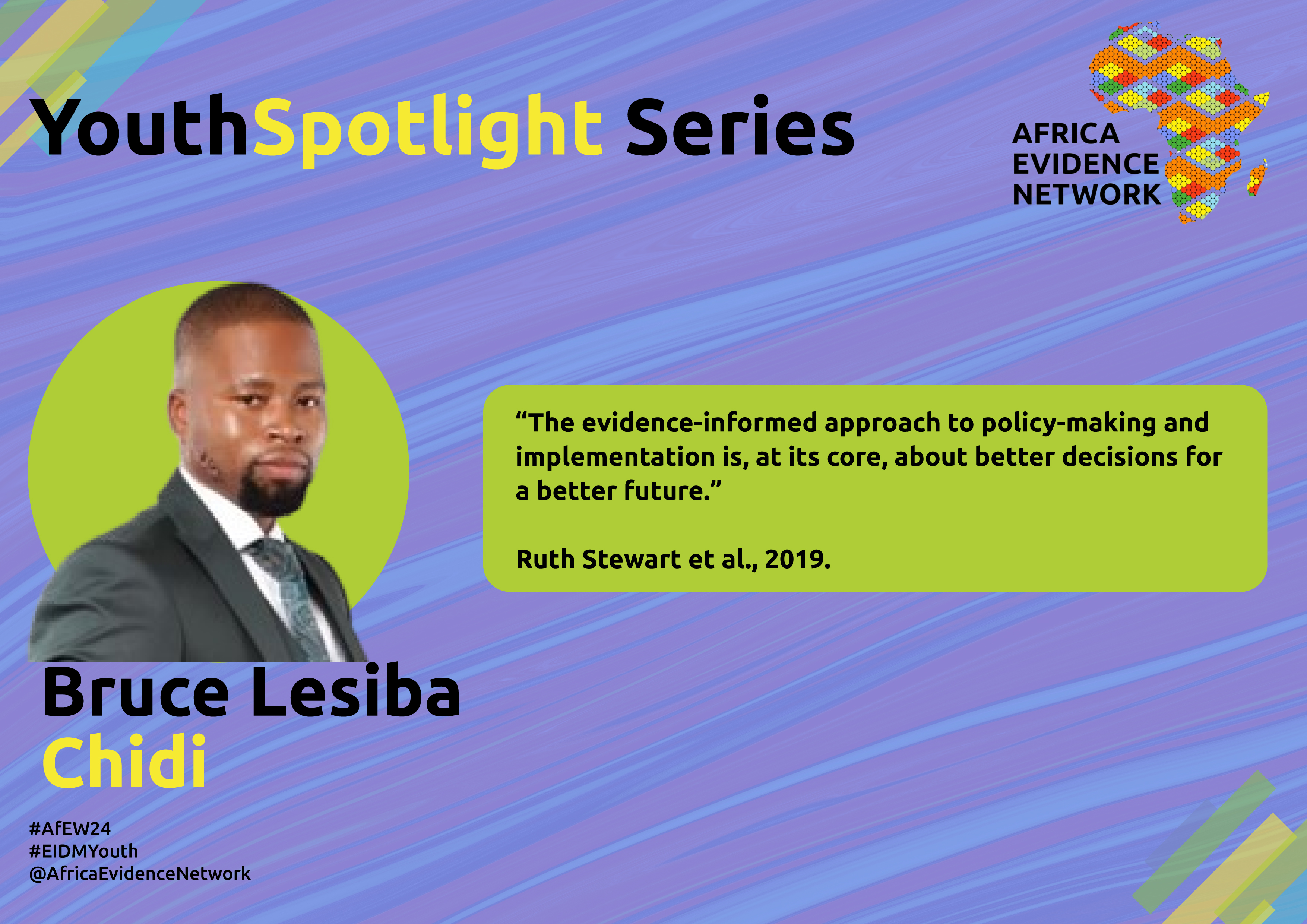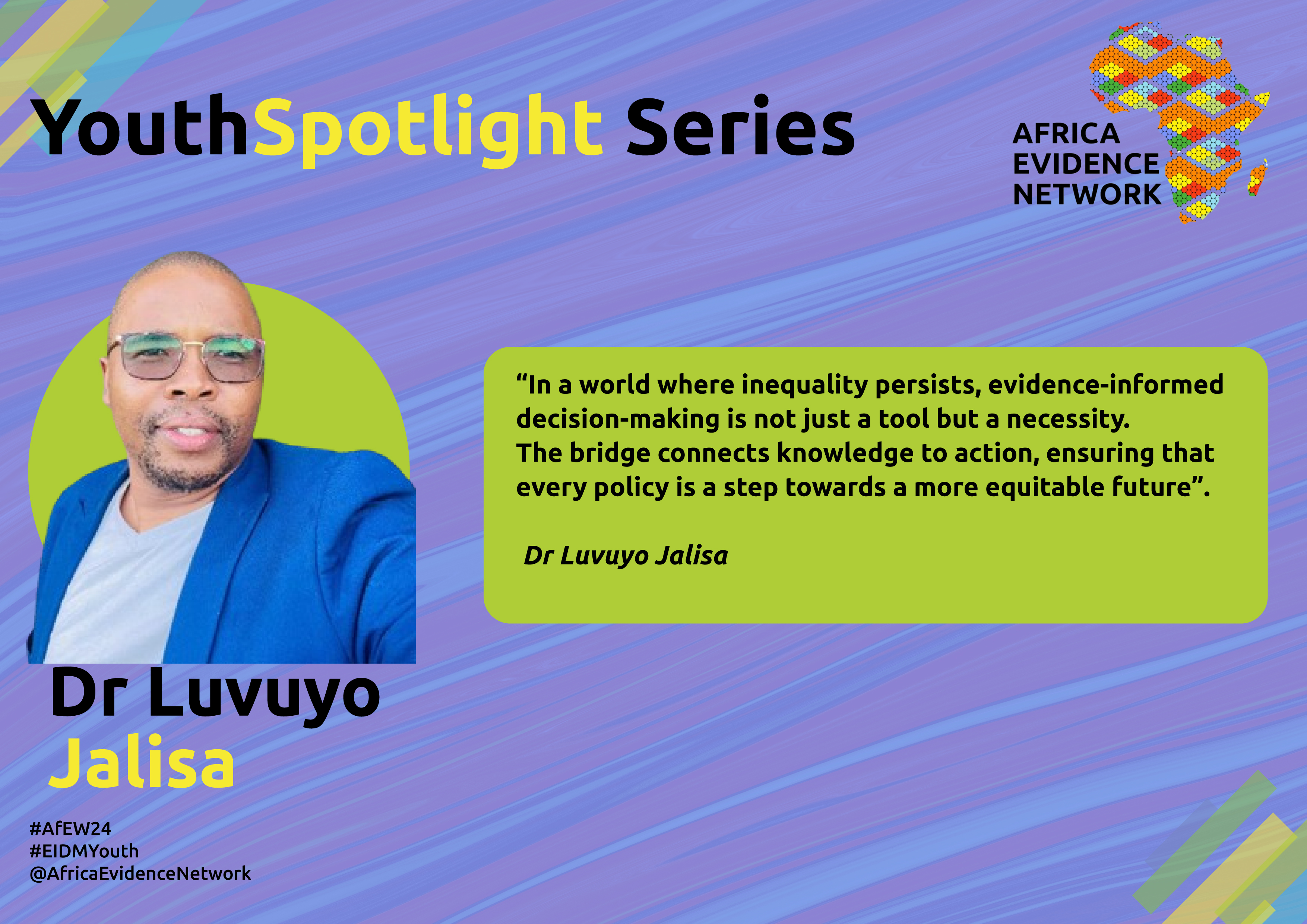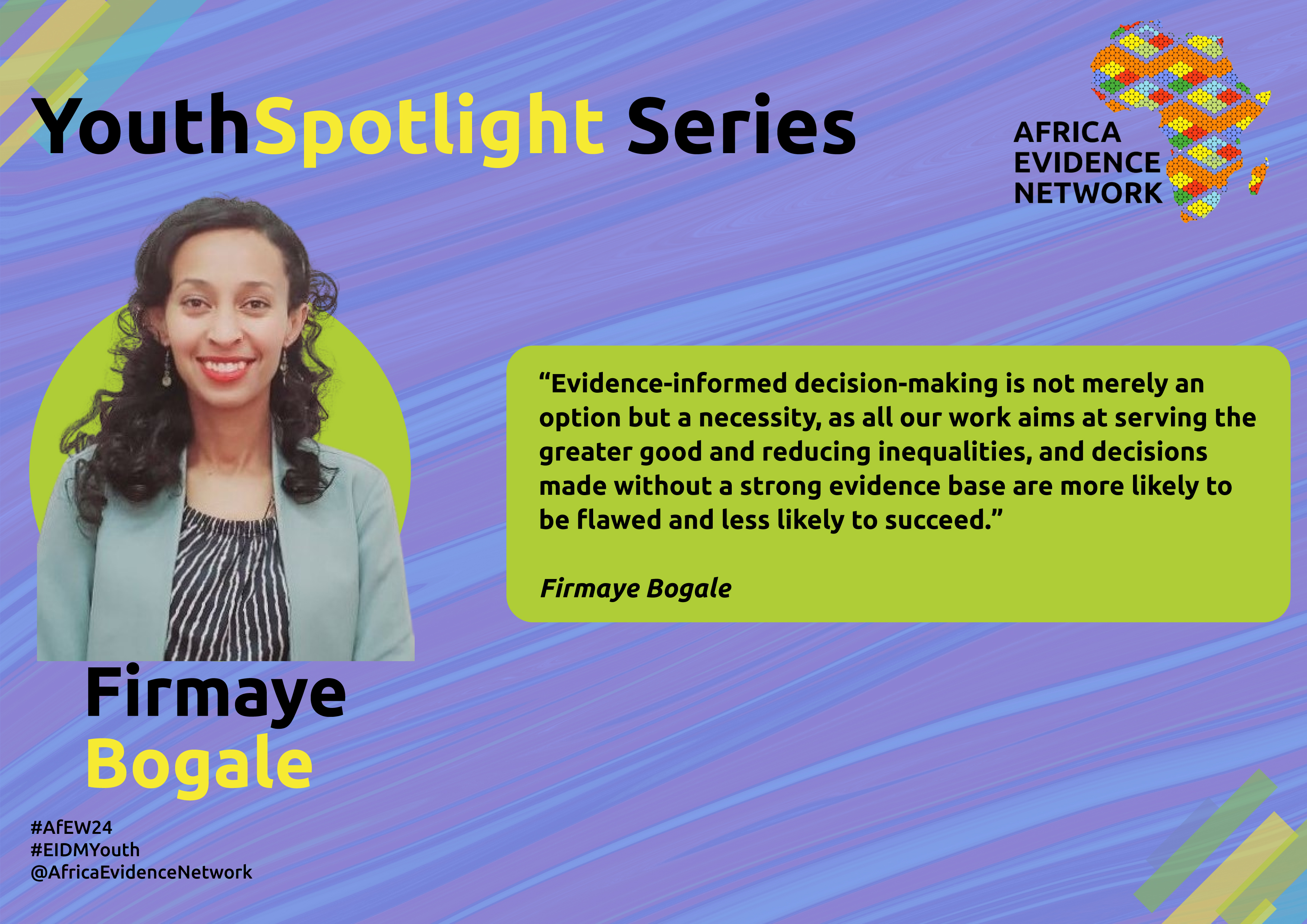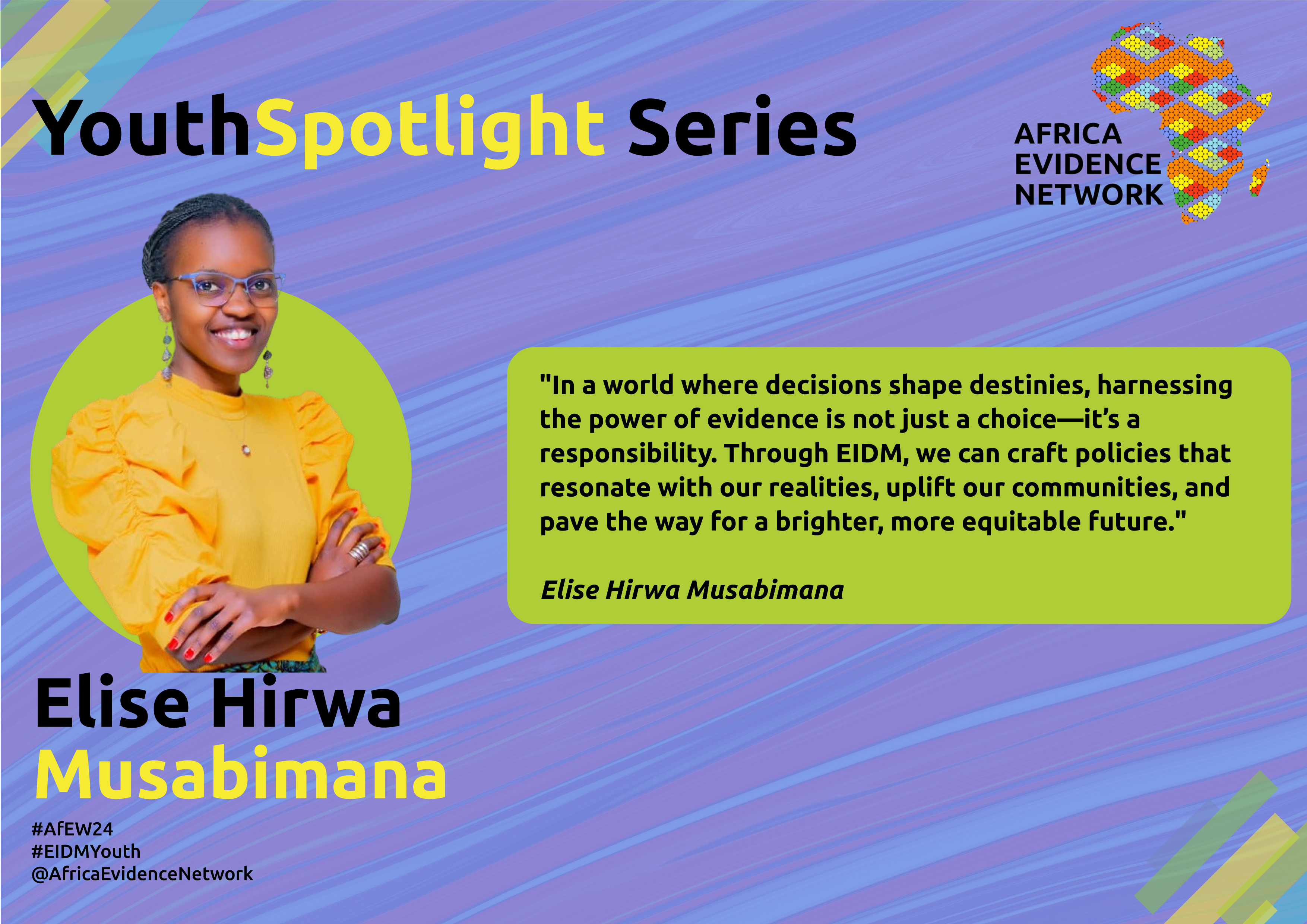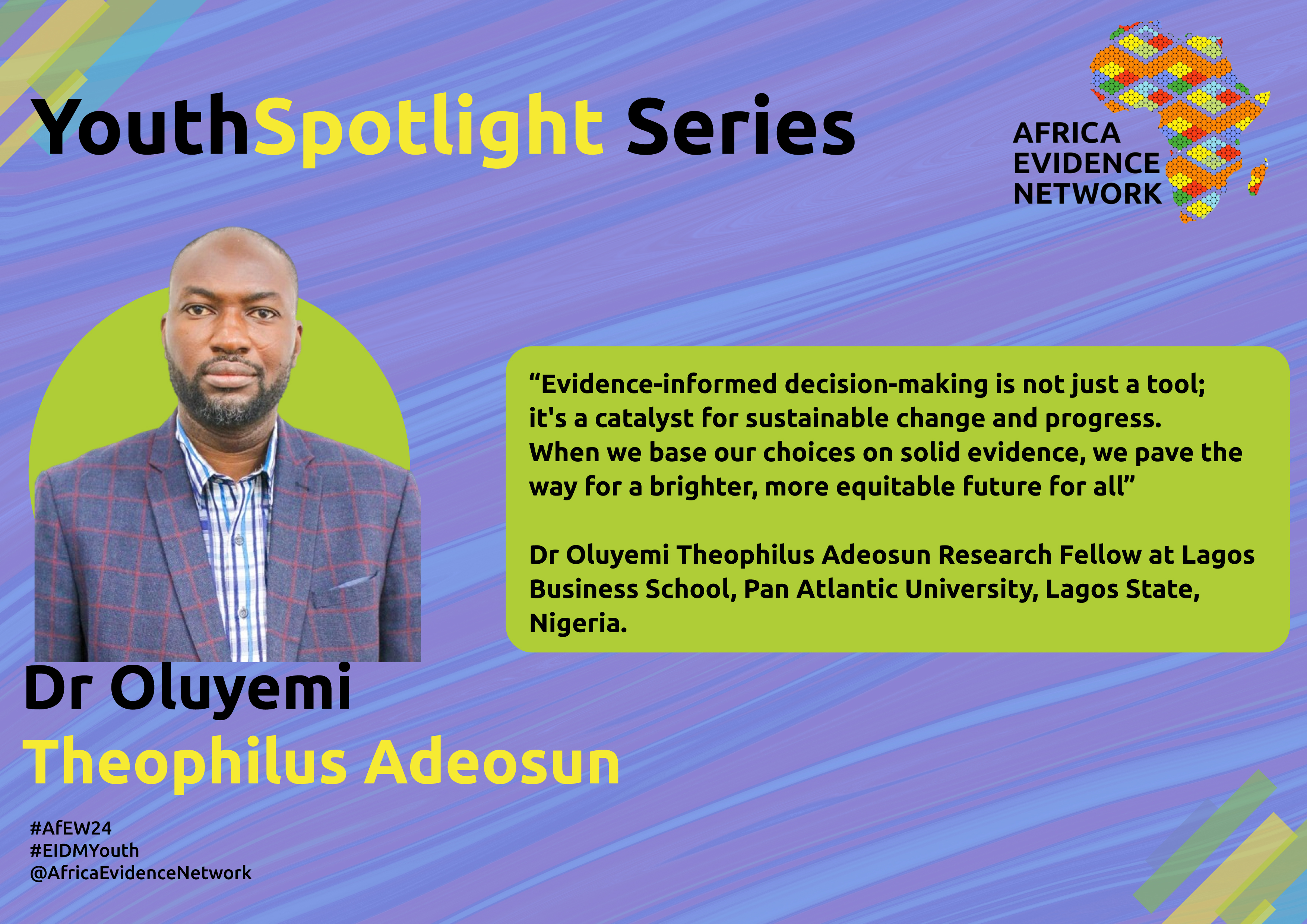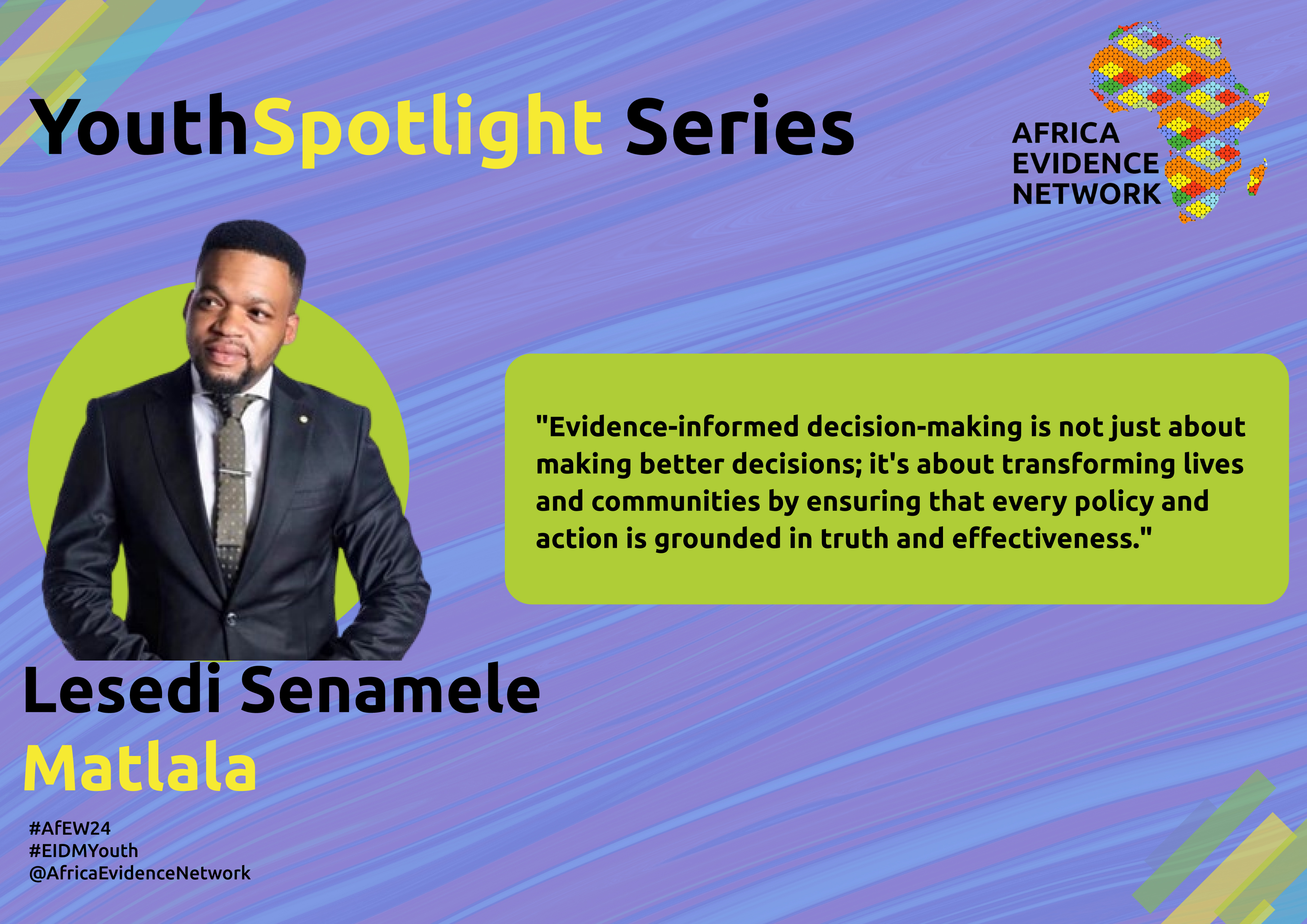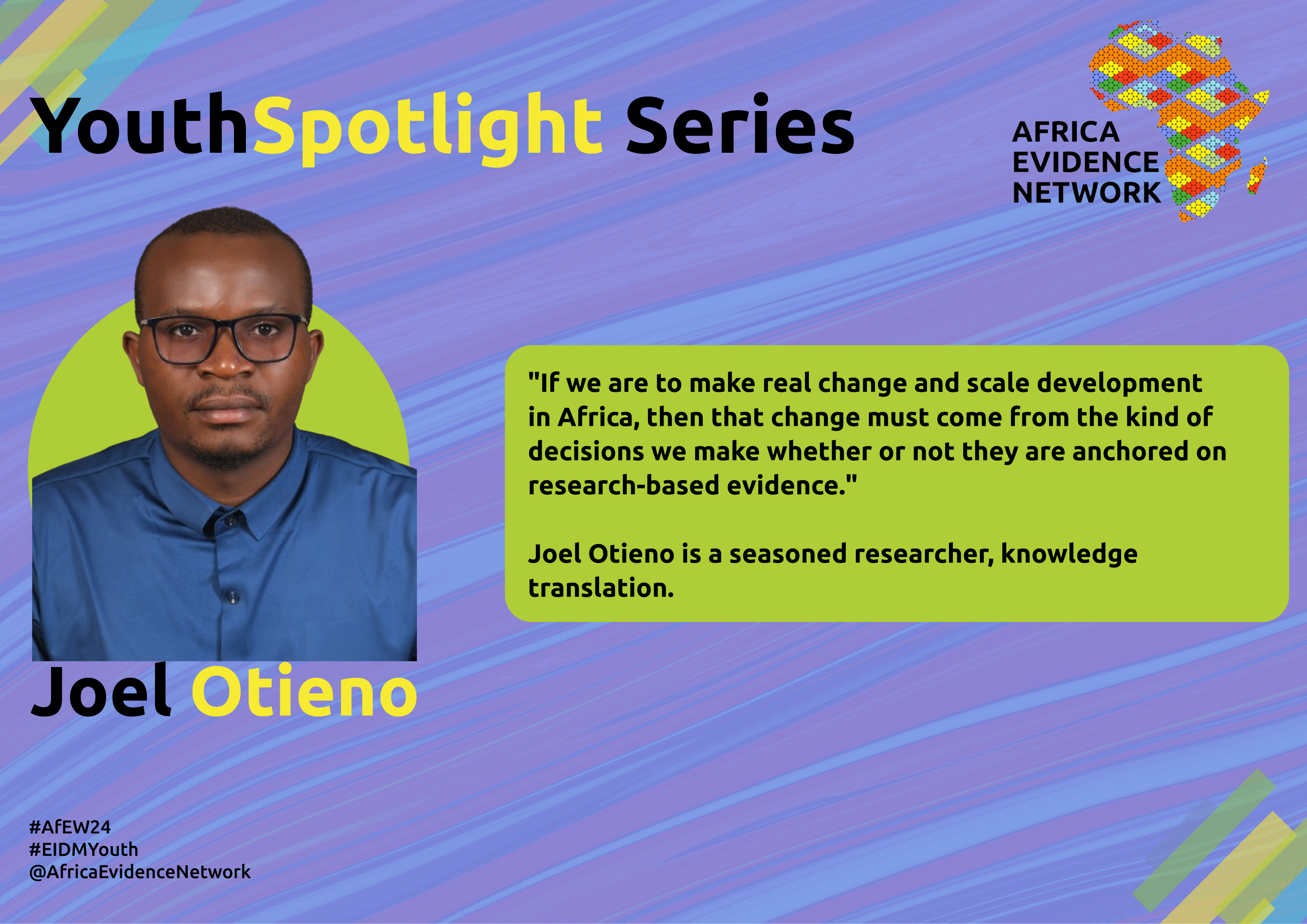
Welcome to the Youth spotlight series, where we offer first-hand insights into young leaders in the evidence-informed decision-making (EIDM) sector. You can discover their stories, achievements, and impact on our community. This is the heart and soul of the #EIDM movement.
In this conversation, the Africa Evidence Network talks to Joel Otieno, a Programme Manager at the Rift Valley Institute (RVI).
Making a Difference with EIDM:
What inspired you to get involved with EIDM?
When I first heard about the term EIDM over 7 years ago, I didn't quite understand what it meant. However, as I later got involved in policy-oriented research, I learnt what EIDM means and became inspired by its importance in promoting a culture of evidence use in addressing Africa's developmental and policy challenges.
Can you share a specific accomplishment you're proud of where EIDM played a key role? How did it make a positive impact?
From my experience, EIDM is both a strategic and an effective approach to driving tested and adaptable solutions that is useful in improving governance, service delivery and operational efficiency at macro and micro levels across Africa. EIDM has specifically played a key role in connecting research to policymaking and vice versa. Through platforms such as Utafiti Sera spearheaded by PASGR, and which supports the growth of Communities of Practice and bridges the gap between knowledge brokers and policymakers, EIDM has influenced effective policymaking for improving education, youth employment creation, social welfare and governance across Africa. Ultimately, EIDM supports improvement of people's welfare and wellbeing.
Have you faced any challenges in promoting EIDM within your community or area of work? How did you overcome them?
Yes. We all agree that EIDM work has not taken centre-stage in policymaking in Africa and is often unpopular among policy makers. This in many ways often translates to lack of interest in integrating evidence and in valuing the place of data in policy making. Further, in my own work as a young EIDM champion, I have come to appreciate that policy making takes place in a nonlinear format and often requires collaboration and balancing the interests of multiple players. This often calls for the need to be deliberate and identify the right people to engage as 'policy champions' in order to bring evidence to bear in policy making.
Your Vision for the Future:
What are the biggest challenges you see facing EIDM implementation in Africa right now?
In my perspective, the three main challenges facing EIDM work in Africa currently, include, (i) inadequate capacity among researchers to produce policy-oriented research (ii) lack of institutionalisation of EIDM practice, to respond to both public and private sector challenges, and (ii) limited spaces for deepened EIDM learning in Africa.
How are you working to inspire and empower other young people to get involved with EIDM?
As an evidence leader myself, I am always involved in training and mentorship of younger generations of EIDM enthusiasts through which I share my experiences gained from multisectoral work across different countries, as well as knowledge and skills for scaling their careers. In my current work, I am involved in developing the capacity of young researchers under the Local Research Network that identifies and trains early career researchers and works with them through a policy-oriented research topic. Under this project, I have witnessed first-hand the tremendous transformation and growth among young researchers, who have continued to hone their skills for more dedicated work in the EIDM space.
Imagine the future of EIDM in Africa. How do you see EIDM evolving and creating a more positive impact?
First, my vision for the future of EIDM in Africa is that the field will continue to gain traction and witness exponential growth of its evidence ecosystem. Speaking directly about current efforts such as the creation of the Africa Evidence Youth League (AEYL), which I am immensely privileged to a pioneering member, I see that, the involvement of youth people is contributing to the transformation of the EIDM and this is expected to continue over the next couple of years. To achieve this vision, there is need to create a supportive environment and invest in knowledge production, translation and dissemination.
Sharing Your Passion (Quote):
Is there a powerful quote or statement you can share that captures your passion for EIDM and its importance?
"If we are to make real change and scale development in Africa, then that change must come from the kind of decisions we make whether or not they are anchored on research-based evidence."
About the author: Joel Otieno is a seasoned research, knowledge translation, and policy engagement specialist with a passion for rethinking public policy and development practice in Africa through data-driven decision-making. He is a champion for evidence-informed decision-making (EIDM) in Africa and an active member of the Africa Evidence Youth League (AEYL), where he supports networking and capacity sharing to shape young people’s contribution to the EIDM work in Africa. He has worked in various policy research and development organisations, contributing to evidence production and sharing, supporting structures of local knowledge, and creating data-driven solutions to African policy and development challenges.
Otieno is currently the Programme Manager at the Rift Valley Institute (RVI) – a premier international research and policy think tank based in Nairobi, where he manages a portfolio of work in research and policy engagement covering the Horn and Great Lakes region of Africa. He is involved in the day-to-day leadership and coordination of programme activities including research planning and execution and driving stakeholder engagement for knowledge transfer on best practice and policy formulation. Prior to joining RVI, he served at the Partnership for African Social and Governance Research (PASGR), as a senior programme officer for research and policy uptake. He contributed to the development of the Utafiti Sera model, which is PASGR’s innovative framework/approach for connecting research to policy and maintaining networks of close collaboration among relevant stakeholders. He also task-managed the Africa Youth Aspirations and Resilience project, which explored Africa’s young people’s aspirations, hopes, and resilience, their perspectives of dignified and fulfilling work against the background of diminishing opportunities.
He has worked on several policy advocacy initiatives touching on governance and democratic practice, peacebuilding, climate change, and economic development across Africa.
He holds a Master’s degree in International Peace Studies (Distinction) from Liverpool Hope University (UK), a Bachelors in Conflict Resolution and Humanitarian Assistance (First Class) from Masinde Muliro University of Science and Technology (Kenya), and a Professional Certificate (ProCert) in Public Policy Analysis from London School of Economics and Political Science (UK).
Acknowledgements: The author(s) is solely responsible for the content of this article, including all errors or omissions; acknowledgements do not imply endorsement of the content. The author is grateful to Charity Chisoro for her guidance in preparing and finalising this article, as well as her editorial support.
Disclaimer: The views expressed in published blog posts, as well as any errors or omissions, are the sole responsibility of the author/s and do not represent the views of the Africa Evidence Network, its secretariat, advisory or reference groups, or its funders; nor does it imply endorsement by the afore-mentioned parties.
Suggested citation: Otieno, J. (2024) Position youth for the transformation of evidence-informed decision-making (EIDM) in Africa. Blog posting on 31 July 2024. Available at: https://www.africaevidencenetwork.org/en/learning-space/article/336/
